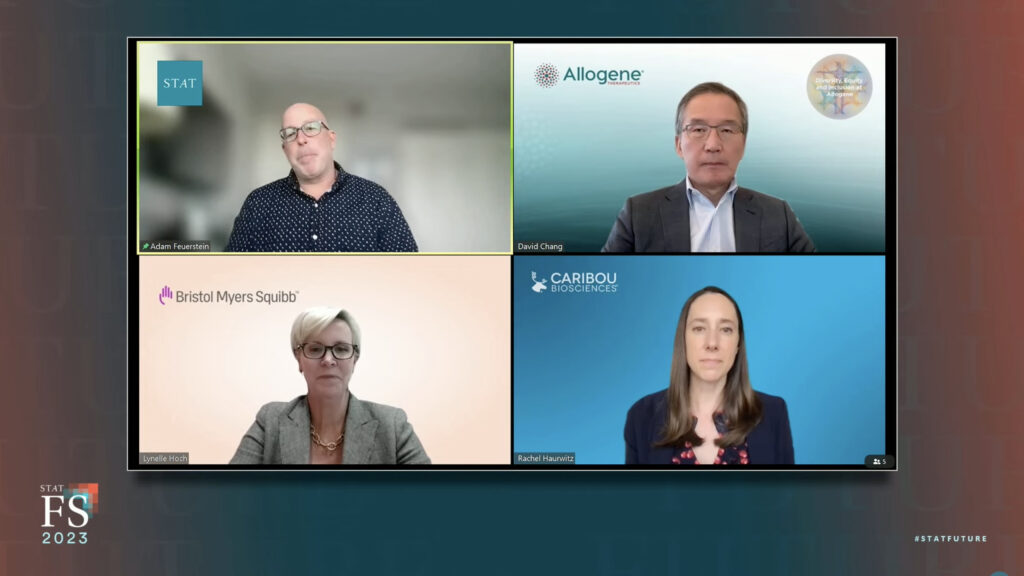If you ask biopharma leaders what’s ahead for CAR-T cancer therapy, they say the future is bright. And that future will also look markedly different than it does today, three of them said at the STAT 2023 Future Summit on Wednesday.
Now in its second decade, the cell therapy — which attacks cancer by extracting white blood cells from a patient, genetically modifying them, and then re-infusing them to fight the cancer — has made remarkable strides. Biotech reporter Adam Feuerstein reminded panelists that Emily Whitehead, the first pediatric patient to receive the therapy at age 10, has just started college.
advertisement
But for all its success in changing the lives of up to 7,000 patients to the point one can use the word “cure,” the field has been hampered by wait lists at manufacturers making these patient-specific, autologous therapies and a shortage of medical centers to administer them. Patients bear a burden, too: Training their B cells to attack their tumors requires an onerous depletion process before their cells can be taken out of their bodies.
Get unlimited access to award-winning journalism and exclusive events.

